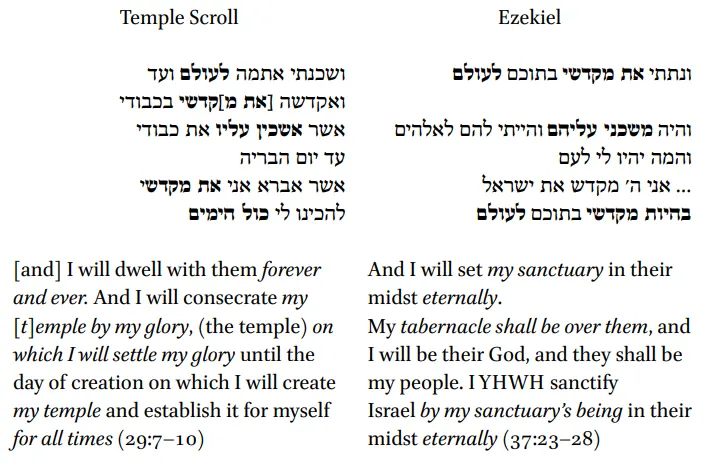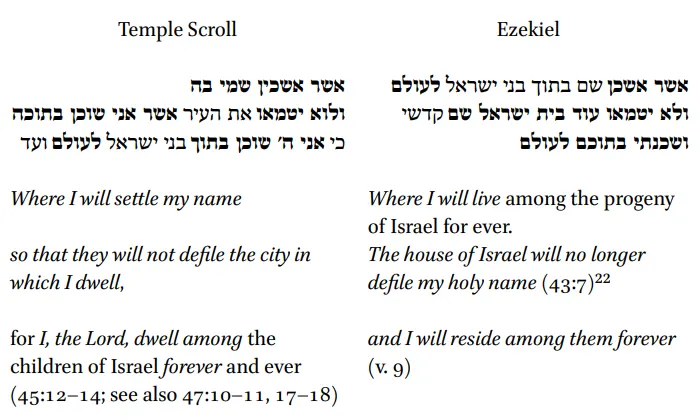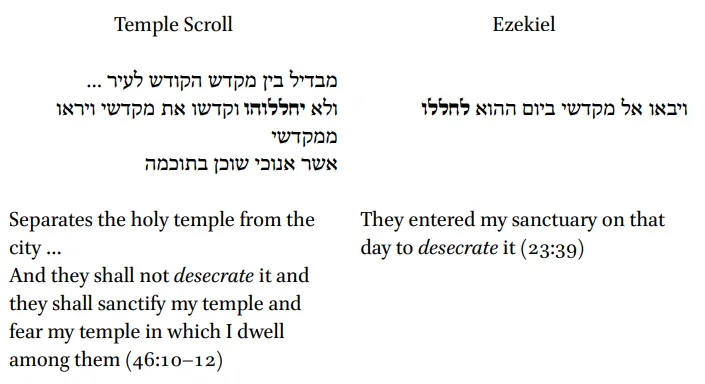By: Ganzel, Tova. Source: Law, Literature, and Society in Legal Texts from Qumran. Papers from the Ninth Meeting of the International Organization for Qumran Studies, Leuven 2016, p 230-252. Abstract: In her essay, G. seeks to shed light on the Temple Scroll's ideological perspective by challenging the dominant scholarly tendency to construe the document largely in terms of its rewriting of the Pentateuch. For her part, G. argues that the Book of Ezekiel also played a substantial role in the composition of the Temple Scroll, esp. in its influence on the author's conception of the holiness of the future utopian temple as envisaged by him. In making her case, G. points to the use by the Temple Scroll's author of language similar to Ezekiel's regarding sanctity and the divine presence, as well as the two documents' shared concern to safeguard the holiness of the future temple, and their comparable efforts to sever the link between the utopian future temple and the physical city of Jerusalem. [Adapted from published abstract: Christopher T. Begg] Publication Type: Essay (AN: OTA0000075646)
하나님께서 영원히 이스라엘 백성들의 하나님이 될 것. (לעלם)
성전의 영원성
신35:14; 레15:31; 그리고 민5:3과 유사
구별된 장소에 대한 언급 (예루살렘에 대한 직접적 언급X)
부정적인 것들과 멀리 하라
성전의 거룩성
성전의 거대함
겔40:5; 42:15-20, 성전문서40:5-8
많은 이들을 거룩하게 하기 위함.
성전으로의 접근
에스겔서는 사독계열의 제사장들만 접근
성전문서는 이러한 계층 구조가 언급되지는 않지만, 보다 엄격한 제한 기준들이 나옴(45:7-18)
제사장들의 정결 강조(15:3-17:4)
제사장들이ㅡ 의복 환복 (성전문서 32:10-11; 33:6-7; 35:6-7과 겔42:14; 44:17-19)
성전의 도시
에스겔과 성전 문서 모두 성전의 도시를 특정하고 있지 않음. 심지어 예루살렘인지도 불분명함. 이는 예루살렘 성전에 부정적인 시각을 반영. 야딘은 성전 문서는 인간들이 지어야할 성전이고, 에스겔서의 성전은 하나님이 직접 지을 성전이라 구별하고 있음.





